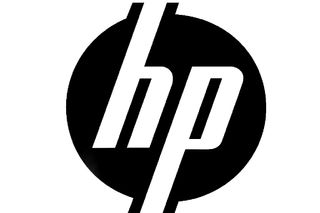HP’s Autonomy buy: How to do an IBM
In buying Autonomy and moving away from hardware, HP is mirroring a close rival in the form of IBM, which might just bring it the success it craves.

ANALYSIS HP is planning an exit route from the personal hardware game. Autonomy is no longer completely autonomous.
These were two huge announcements which greeted us on the web last night and in this morning's papers. The latter move, a $11.7 billion (7.1 billion) acquisition of the Cambridge-based software firm, marked a massive moment for HP.
In line with its move away from hardware, the Autonomy buy makes the Leo Apotheker-led company a much more formidable software and services proposition.
Furthermore, in targeting the software segment in earnest, as well as shifting a significant amount of focus to the cloud, HP is mirroring the profitable development of one of its major competitors: IBM.
Following the Big Blue model
Towards the end of the 1980s and into the early 1990s, IBM was stuck in a rut, reporting significant losses. To turn things around, IBM chose to slimline what it was doing and move away from hardware.
In 2002, IBM bought PwC Consulting, proving it was serious about the services market. Having made its name as a PC giant, as HP has done, it chose to sell off its ThinkPad brand to Lenovo in 2005. Since then, IBM has grown to become one of the most valuable companies in the world.
Get the ITPro. daily newsletter
Receive our latest news, industry updates, featured resources and more. Sign up today to receive our FREE report on AI cyber crime & security - newly updated for 2024.
HP is mirroring the profitable development of one of its major competitors: IBM.
Through to today, Big Blue has shown its willingness to remain a software and services company first and foremost. At a recent meeting, IBM reiterated the three core areas where its focus lies: Smarter Planet (essentially using analytics to make smart use of data), cloud and business intelligence (BI).
Clearly, the possible spinning off of HP's PC business resembles the sale of ThinkPad. It's also pretty clear though that HP is going to focus on those three aforementioned pillars of IBM's strategy.
In Autonomy, HP has bought a company with some serious prowess in the data management segment. This will add to HP's lineup of analytics and BI solutions.
Tom Brewster is currently an associate editor at Forbes and an award-winning journalist who covers cyber security, surveillance, and privacy. Starting his career at ITPro as a staff writer and working up to a senior staff writer role, Tom has been covering the tech industry for more than ten years and is considered one of the leading journalists in his specialism.
He is a proud alum of the University of Sheffield where he secured an undergraduate degree in English Literature before undertaking a certification from General Assembly in web development.





